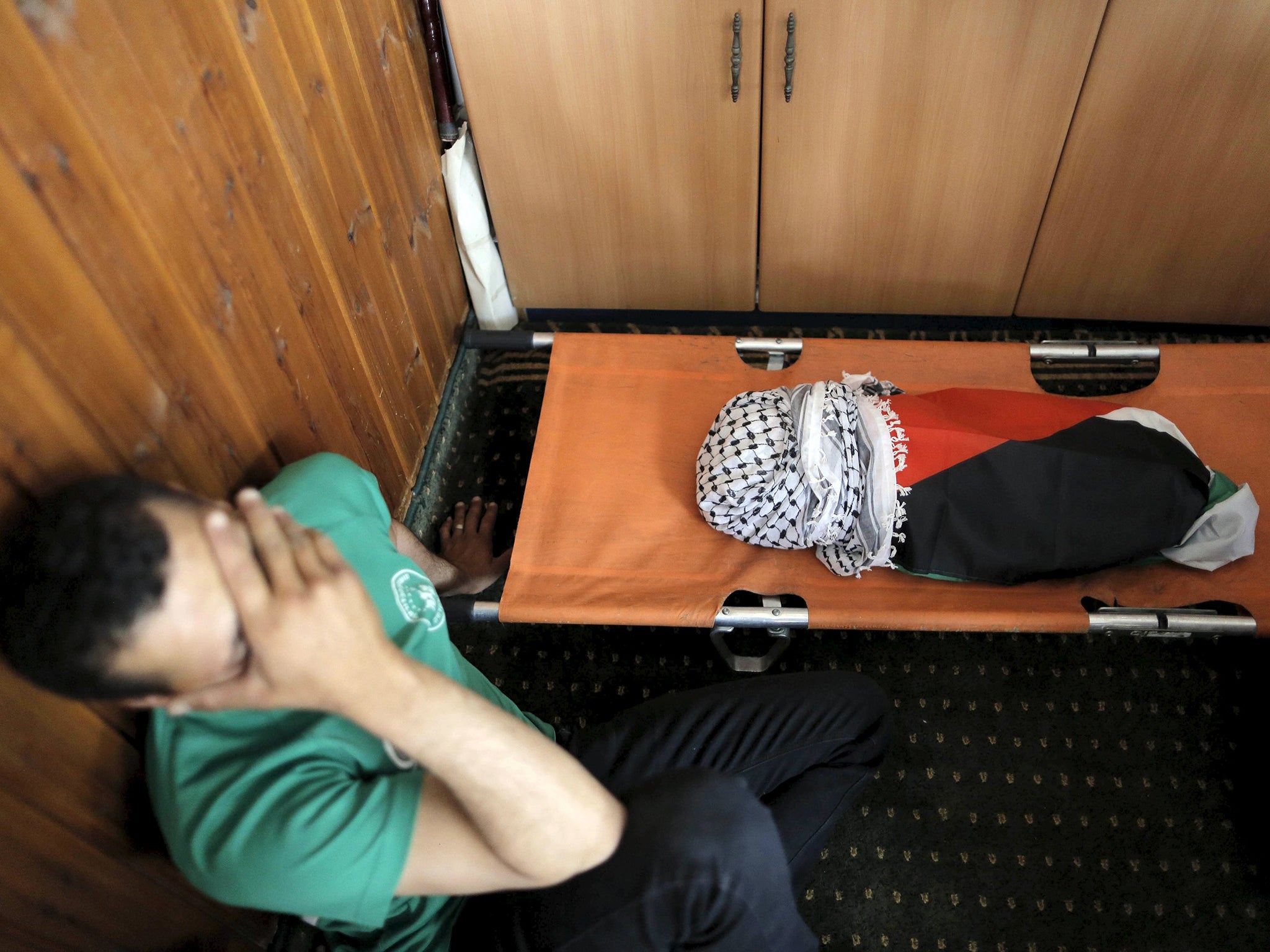What I saw inside the house of Ali Dawabsheh, the Palestinian baby burnt to death by Jewish extremists
Like Aylan Kurdi, Ali was the victim of a crisis he knew nothing of, and never would

I stare at the wreckage in front of me, and see a living room that will no longer host family parties, celebrate birthdays, or host grandparents. Low murmurs stir the silence. Naser, the uncle of the baby who had burned in the wreckage, stands nearby. His face is gaunt. His eyes exhausted. His silence as heavy as the air.
This was the house of Ali Dawabsheh, the 18-month-old baby who was burned alive in his cot in Douma, Palestine. He lived with his mother Reham, his father Saed and his four-year-old brother Ahmed. Like Aylan Kurdi, whose little body washed up on a Turkish beach, Ali was the victim of a political crisis he knew nothing of, and never would.
Naser moves towards us, and takes out his smartphone. He scrolls through it until he finds a video. He takes a moment to decide, and then presses play. A tiny boy holds onto a tiny chair in his parent’s kitchen, giggling and jumping excitedly in response to the sound of the person filming. His father is laughing, calling to him. Baby Ali’s eyes are dancing. The video stops, and so does the laughter. From the stillness, Naser begins to move, leading us into the devastated home where his tiny nephew had died.
The house is scorched by flames and covered in shattered glass and rubble. In the bedroom, blankets are strewn everywhere. Clothes are piled against the wall. A trike. A baby’s pram. The air catches in my chest. They had all burned in this room.

Ali and Ahmed had been brought in here on the night of their parents’ wedding anniversary. It was too hot in the house. Saed put them next to the air conditioning so they could sleep without the heat interrupting their dreams. The crickets had been singing lullabies as the sun set. When light did break through the window however, it was not that of the rising sun. Within seconds, they say, the firebomb had surged through the room. Flames screamed through the darkness, lighting up the buildings nearby. Inside, Reham ran with her baby to the door of the house. Its metal handle seared her skin. Meanwhile, Saed ran with Ahmed in his arms.
What happened next isn't completely clear. Reham was in her neighbours’ house screaming. The bundle in her arms was not her baby. It was his blankets. He was not with her. Where was her baby? Her skin fell in swathes from her body as she ran. Her screams were desperate. Her baby was not with her. Where was her baby? Where was her baby?
Ahmed was engulfed in smoke. He watched as his father collapsed at the door of the house. He saw two masked men standing over him. He hid behind the door and screamed for his daddy to come back. The two masked men turned to see another man running towards them. They turned on him and ran with raised fists. Ahmed screamed for his daddy.
When Saed awoke, he could not find his son. He had carried him from the house but he was nowhere to be seen.
Ali Dawabsheh died from third degree burns. His skin had melted from his body.
His father Saed died from his injuries two weeks later.

Reham, his mother, was in a critical condition for five weeks awaiting skin transplants. Ninety per cent of her body had been burned. She died on 7 September from her injuries.
Ahmed was unconscious for days. He woke up screaming for his mummy and daddy. He is now stable and in hospital but suffering terrible injuries. He speaks about the fire. He does not understand where his mummy and daddy have gone. He does not understand where his baby brother is.
This was the work of much more than just a merciless fire. This was the work of a violent idea, hatched in the minds of exremists. It was based on the assumption that blatant human rights abuses are acceptable, and that Israel is willing to turn a blind eye so long as they happen to Palestinians. And that assumption seems to have been correct. The Israeli government has identified the men who carried out an arson attack that killed three members of a Palestinian family, but is yet to press any charges.

After declaring this incident a terrorist attack, the Israeli government has also ruled that the Dawabsheh family are ineligible for the financial support to which Israeli and settler victims of terrorism are automatically entitled. But the terrorist attack on Douma has been a turning point in Israeli opinion: it has led Bradley Burston, a Jewish columnist and senior editor of the Israeli newspaper Haaretz, to describe Israel as an apartheid state.
We must not let our grandchildren accuse us of turning a blind eye to the atrocities being committed against Palestinians today. When we stand up for Aylan Kurdi, we must stand up for Ali Dawabsheh as well.
Join our commenting forum
Join thought-provoking conversations, follow other Independent readers and see their replies
Comments
Bookmark popover
Removed from bookmarks